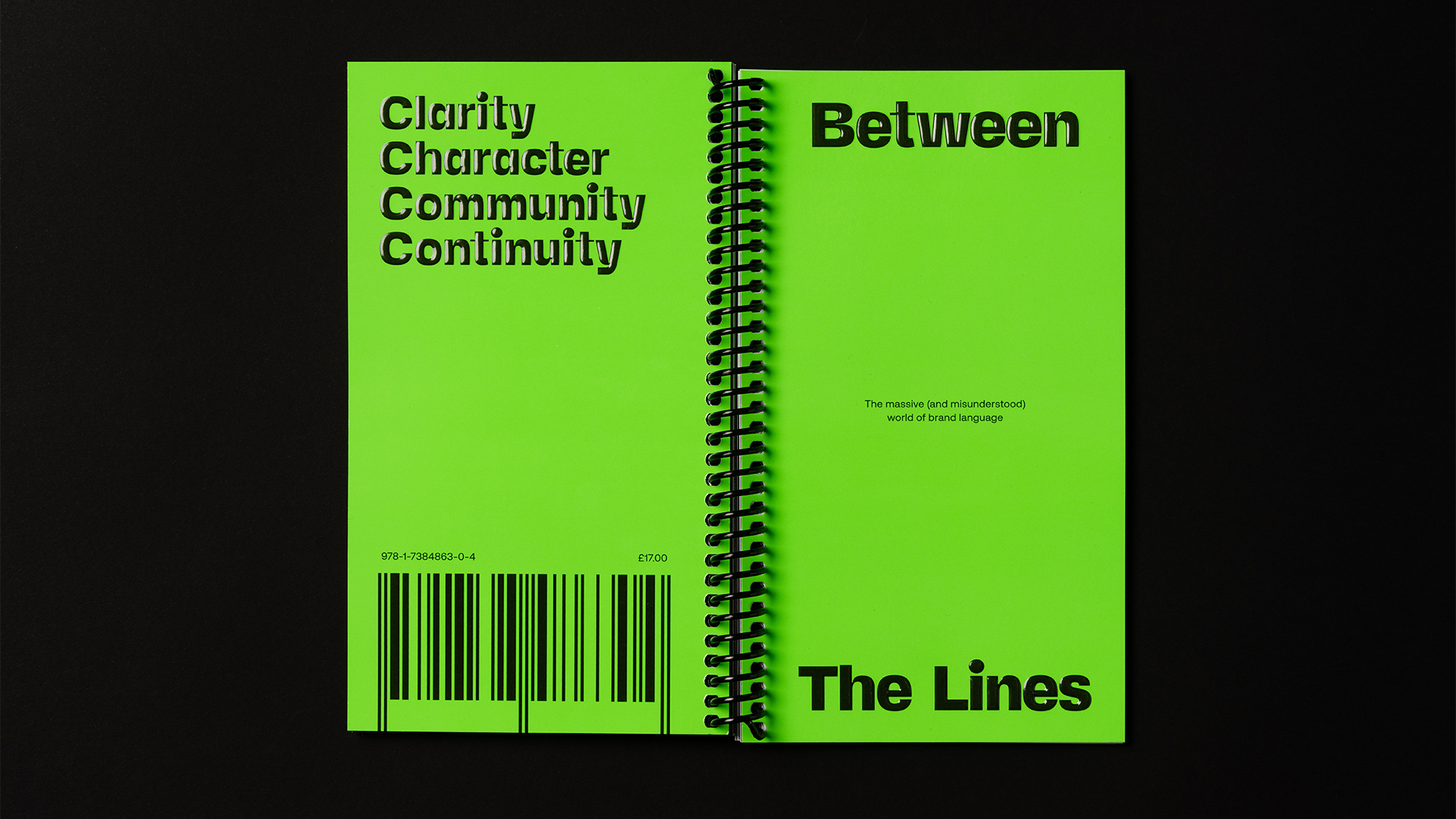
Zosia Swidlicka is a creative writer engrossed in the world of art and design. In 2022 she founded Opening Line, a copy studio that aims to bridge the gap between strategy and words. She recently launched her debut publication Between the Lines, a deep dive into the "massive (and misunderstood) world of brand language". Compiled by Zosia, the publication features accounts from a diverse array of writers across the creative industries.
To Zosia, words are the anchor of a brand – the foundational essence of identity that brings a project to life. To celebrate the launch of her new publication, I caught up with Zosia to discuss the intricate symbiosis between writing and design and how she'd like to see it evolve. (For more inspiration, take a look at our interview with Mike Reed, copywriter and creative director at Reeds Words).
What inspired you to create Between the Lines?
The short answer to that question is a desire to learn for myself. I'm realizing many people working in brand language tend to stumble into it and that was very much the case for me.
A lot of it felt very innate and intuitive to me, but there were lots of times when I was asking myself questions like 'why is it this way?', 'what's the right answer?' Essentially, is there a better way of doing this, and why does it have to be this way? That took me on this journey of asking people who've been doing it much longer than me – people whose work I've seen and admired – and it spiralled from there.
How did you compile the diverse voices for Between the Lines?
I feel like I've perfected my LinkedIn sleuthing to an art now. It's such an amazing tool for finding different writers and collaborators. About this time last year, I put out a survey where I asked questions like 'What is brand language?', 'How do you use it?, 'Why does it matter?' and posted that on LinkedIn.
I had a mix of people within my connections and some who randomly stumbled across the link filling it in. Luckily it gave a balanced mix of responders, from writers and strategists, designers to creative directors, business owners, coders, product managers. That was really important to me because I wanted to include a diverse breadth of perspectives in the book.
I wanted to get perspectives from people who aren't just copywriters, but also people who work with brand language in other ways. The people who are typesetting it, the people who are commissioning it, the people who are working with it on a day-to-day basis. A lot of brand language is written by people who aren't actually writers with a capital "W". The idea was to get all of these perspectives and bring them together in a single place.
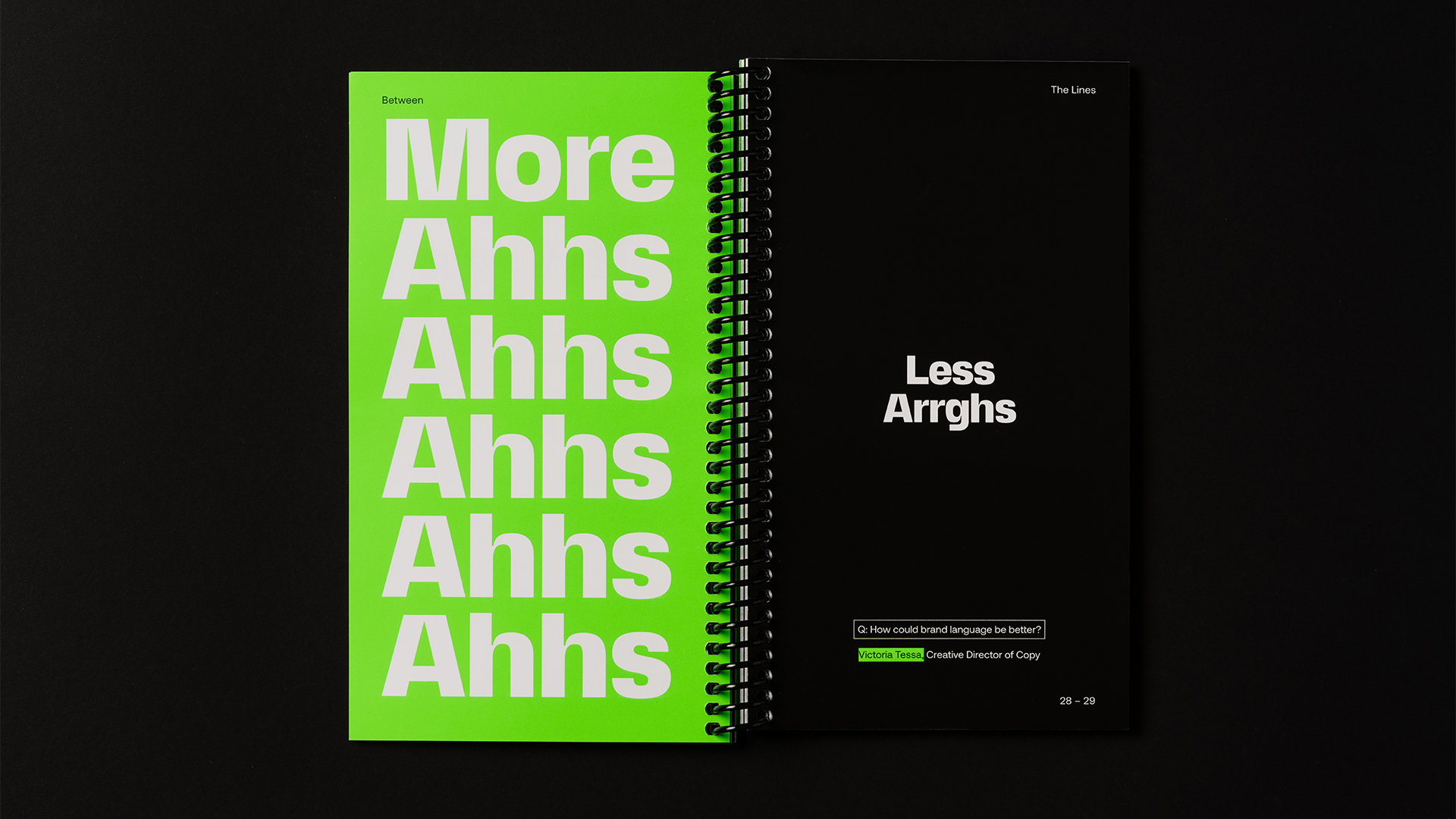
What sets opening line apart from other copy studios?
The reason I started Opening Line was because I felt that a lot of the work I was being given as a freelancer meant I had to choose between strategy and writing. The process has always been very symbiotic. I think good copy needs good strategy, and good strategy needs to be written in a way that is memorable and distinctive – just simple and clear. That's why I started Opening Line, to bridge strategy and copywriting together into a single process, rather than having an inefficient way of working that silos the two disciplines.
What sets us apart is the fact that I collaborate with lots of different freelancers. That means that I'm able to bring on the perfect person for the role and I collaborate with them so that we can bring a multi-dimensional perspective to a brief. Every time we work on a project, it's a bespoke team that's been selected by myself and together we can produce something compelling and strategically sound.
Do you think there's a divide between copywriting and design?
Definitely. I'm trying to bridge that gap because I think often there's a sense that they are completely separate disciplines. When designers, writers and strategists can all get together, share ideas and just bounce off each other, the work is just better as a result of cross-disciplinary collaboration. When we've had the pleasure of doing that with other designers, it's just been magic.
It's something that Opening Line is trying to do more of – asking ourselves 'How can we bring designers into our process?' It starts with words. We always fight for words to be included at the beginning of processes when it comes to a new design brief. Bring writers into that first meeting, and make writing part of the process from day one. Likewise, we're always trying to get a designer's perspective on the writing because it's going to make it richer.
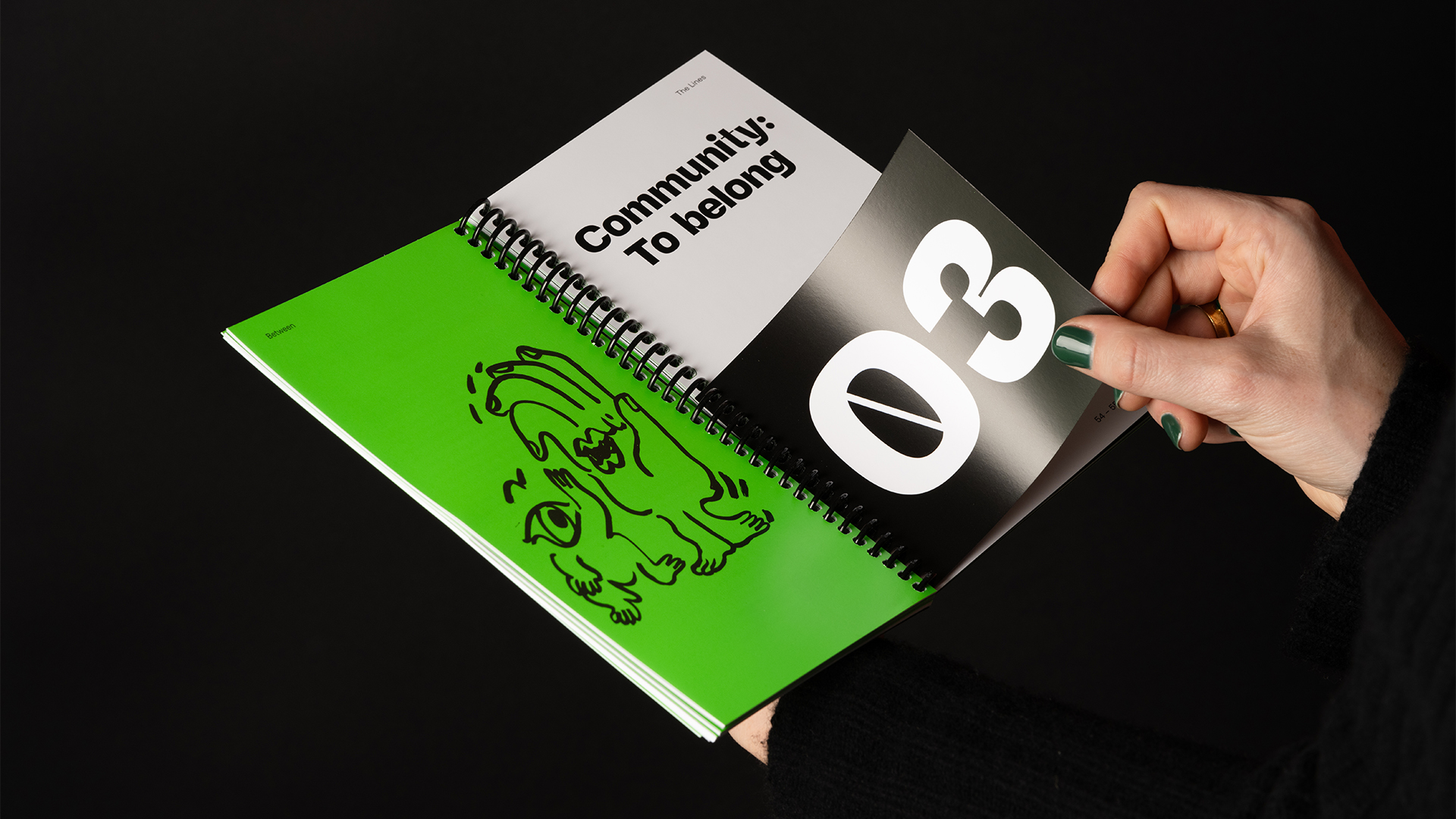
Why are words so important for branding?
From my perspective, they bring depth. You can have a beautiful brand, a stunning design, or a wonderful idea that lives in someone's brain, but if it's not written down then it's it's empty. If there are no words to anchor the brand, it's superficial. Words help to bring that depth to a brand. For me, it's also clarity. It's that combination of verbal and visual identity that builds the best brands.
What are your thoughts on AI?
AI is something that we are trying to educate ourselves about and look for ways to bring it into our process. For now, we're using it as a glorified version of Google or thesaurus.com – any kind of research where it can unlock thinking or provide information. I would love to explore ways to be more strategic about the use of it, but that's definitely a work in progress for us.
I'm excited to give it a go. I don't see it replacing all of our processes. Hopefully, it will convince clients and designers of the value of human writers and strategists who can ultimately create something that feels distinctive and fresh. If you want to sound like everyone else, write it with ChatGPT, but if you want to be clear on what you're saying – and do so in an interesting way – then there are some incredibly talented people to help with that.
"I’ve always believed that tactics are no match for vision and intent. And some taglines are brilliant, but they represent about 1% of what brands can do with words.”
Zosia Swidlicka, Between the Lines
I'd be lying if I said, I wasn't questioning my career choices at any point over the last six months, but I think it's like any technology – you just have to learn to work with it, not against it. I think we need governments to intervene with regulation ASAP, but in terms of what AI means for the branding profession, let's use it as a motivation for us to get better at what we do. Let's learn to use it in a way that can enhance our process rather than inhibit it.
What do you think makes a good copywriter?
It's not enough to be a good writer – to have a way with words or understand grammar. You've got to think strategically about what you're trying to say in a way that's as distinctive as possible so that it resonates with an audience and stands out from what everyone else is saying. Ultimately, you want to make people feel something. If you're not getting anything out of your reader, it hasn't done its job.
In my experience, it's the ones who are willing to collaborate and are not too precious about their words. The ones who are open to other ideas and ways to continually improve and develop a piece of text – that's where the good stuff comes out. It's in the multiple rounds of edits, it's not giving up after the first draft. Knowing how to collaborate with other people is definitely a gift.
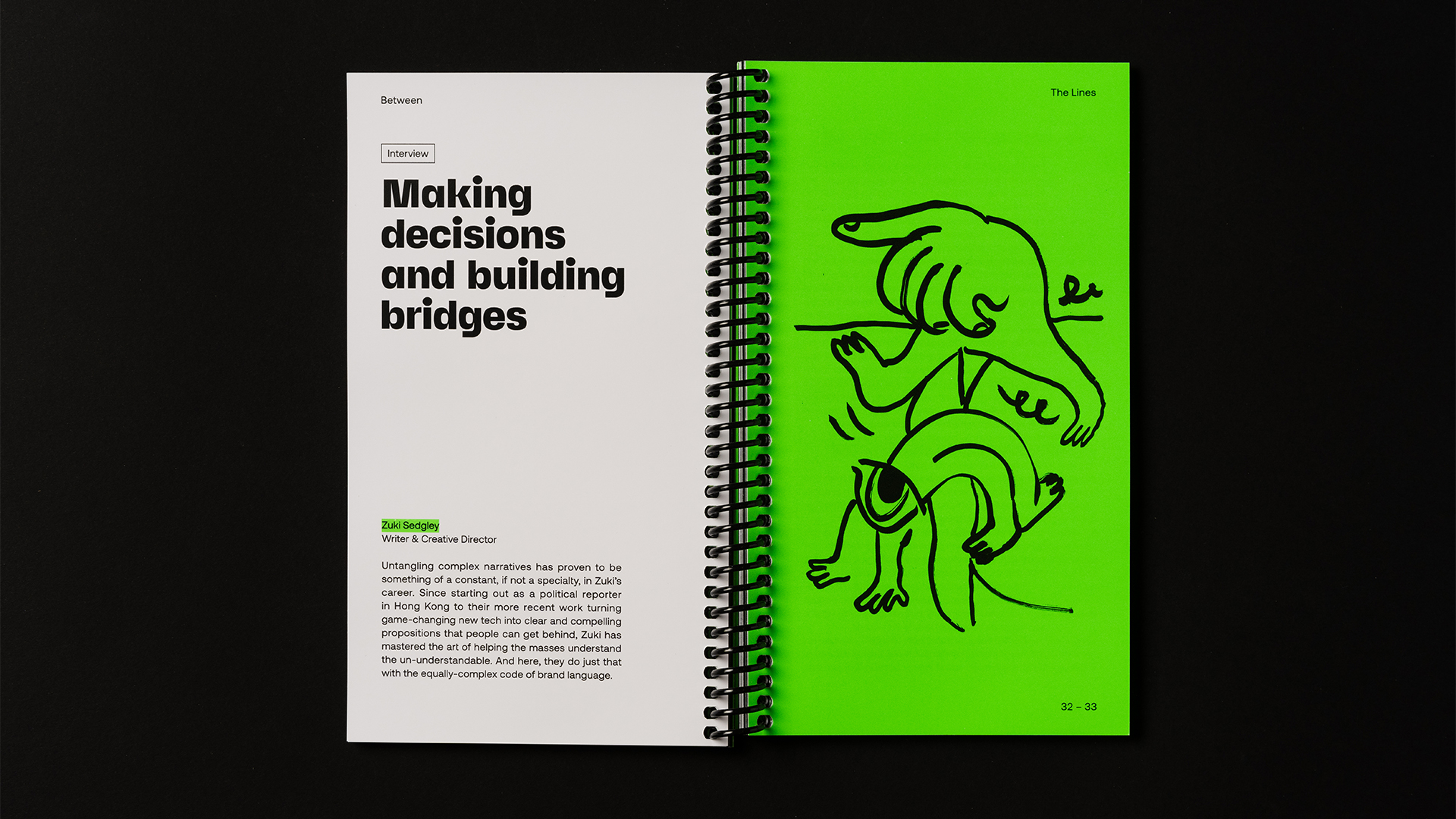
What advice would you give to someone who's looking to get into copywriting?
Don't be inhibited by any lack of experience, just follow your gut. Follow your instinct and your lived experience in your style – it's so precious. Hang on to that because you don't want to sound like all the experienced copywriters that we can all read out there – they're all great, but that's their voice. Bring your talent to it and don't lose that because that's what sets you apart.
Learning to speak about your work is really important. Knowing how to explain why you've written it in a certain way is super valuable because I think often you have a very good reason why you made those decisions. That's not going to be immediately obvious to your client or collaborator, so knowing how to say, 'this felt important because of XYZ' and bringing it back to the strategy as a rational argument is very important. Don't be afraid to explain your work.
Is there anything you'd like to add?
Working with Extract Studio on Between the Lines was a key part of the process. It was very important for the publication to be treated visually in a way that was aesthetically arresting and unique on a shelf. When you look at typical publications that speak about copywriting, strategy and marketing in general, it's all printed on cheap paper. It's visually super dull and dense with text. If I want to transmit anything with the book, it's to inspire people to want to pick it up, read it and put some of the ideas into practice in their day-to-day.
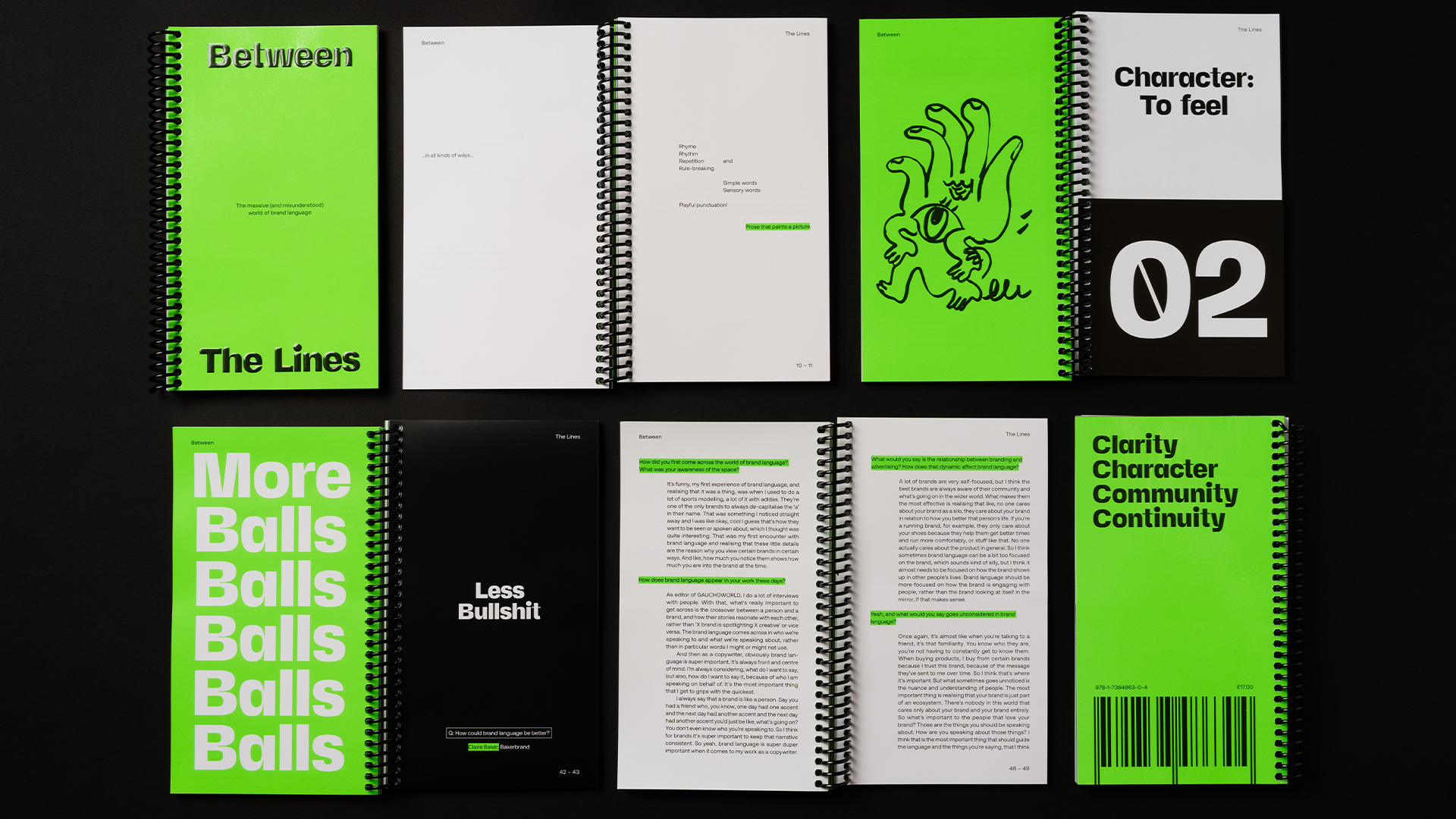
You can order your copy of Between the Lines here. To learn more about Opening Line check out their official website.







